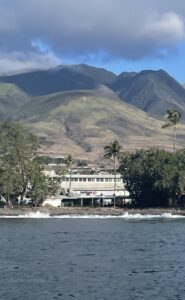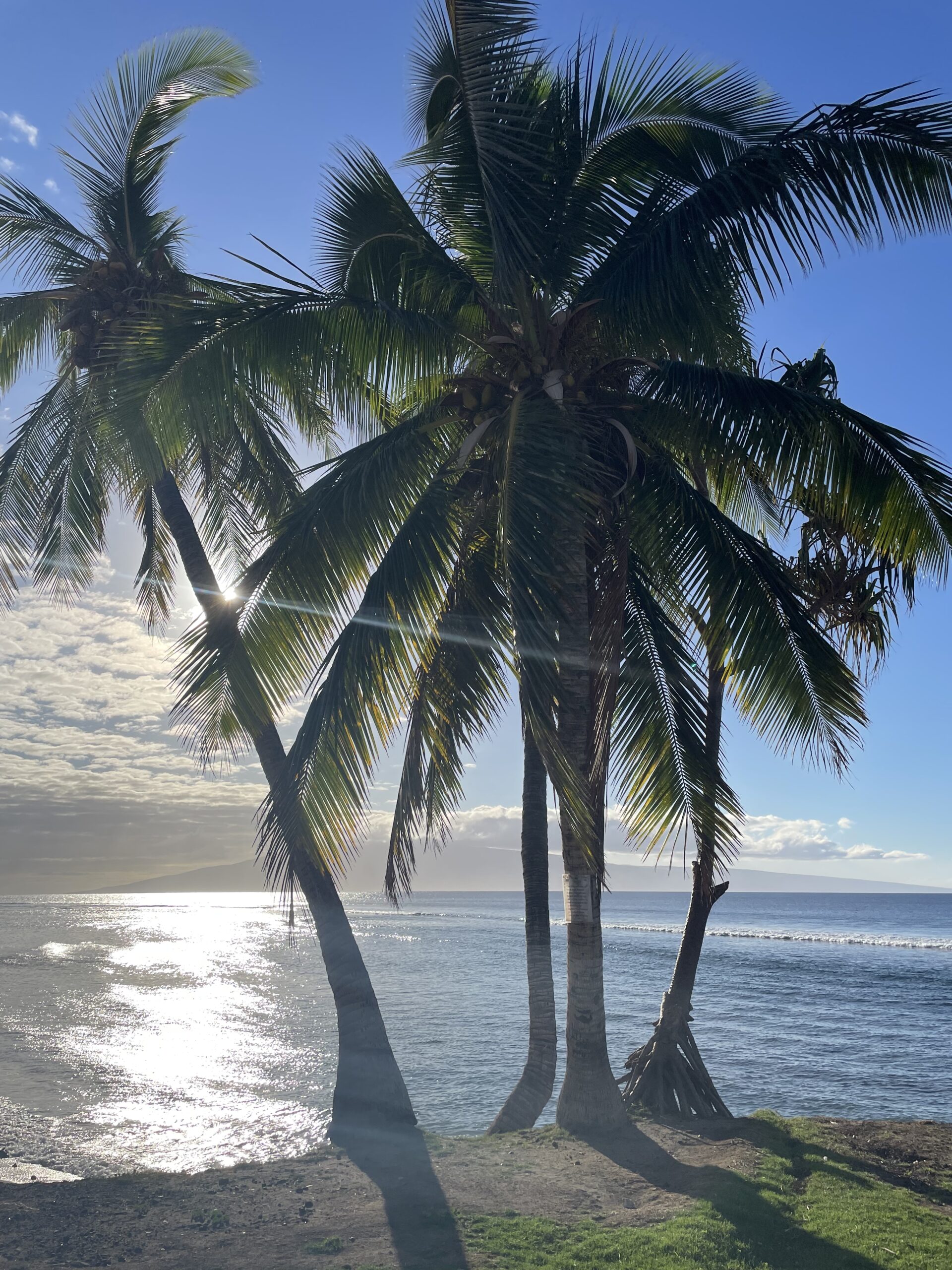By EDWARD LEES

Photos by author.
Lahaina, Maui
When I was young, my parents
took me to Pompeii.
I remember the grouped bodies in the museum
of people who had tried to shelter.
The scrubbing out had been so forceful
that much was forgotten—the heat so intense
that gemlike crystals and glass had formed,
like strange echoes.
They say there is metal sculpture here in Lahaina
where cars melted in the fire
and pooled aluminum filled the empty spaces.
Like a stone ruin in Campania, stray cinder blocks jut
out of nothing.
Stu Macrobbie lost his templates
that shaped local surf culture
and generations of families
living without insurance will leave.
Kenyero Fuentes, a week shy of 15, was starting
at Lahainaluna the next day.
His huddled shape was found next to his dog’s.
From the water, I see the massive L
marked in the hills for the high school.
Each year seniors tend it.
I think of them painting and clearing for Kenyero:
red and white, like wrapping paper,
so we will remember
the birthday he should have had,
with vanilla cake and pork tacos.
Edward Lees is an American who lives in London. During the day he works to help the environment and in the evenings he writes poetry. His works have been accepted for publication in various journals including Southern Humanities Review, Potomac Review, Moonpark Review, San Antonio Review, and Anthropocene Poetry Journal. He has been nominated for Best of the Net.




